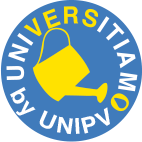I was in a supermarket, walking down a corridor dedicated to croissants, biscuits and snacks. I was greedily glancing at some snacks full of chocolate and coconut, intended to leave them on the shelf – it’s swimsuit season, dammit! – while I noticed the following symbol printed on the box:
 |
| Coop and ethical marketing to kids: labels |
“Moderate consumption for kids”
This thing impressed me positively, since it is a good example of honest and ethical marketing towards kids. It is not profit-oriented at all: some parents, reading it, could avoid buying the product or, at least, drastically reduce their consumption of it. It is an act of responsibility.
I searched on the Internet some information about this symbol and the philosophy of the company producing these products, Coop. Coop (abbreviation of Consumers’ Cooperative) is a system of Italian consumers’ cooperatives which runs the largest supermarket chain in Italy. Coop was created to buy and resell high-quality goods at fair prices to its members and to consumers in general, striving for biological goods and for food safety.
More precisely, Coop is committed to offer healthy products to kids, dedicating to them tailored goods and launching informative campaigns in order to support parents’ in their buying decisions and to fight children obesity. Researches show that, in Italy, 22.9% of children between 8-9 years old are overweight and 11.1% are obese. One of the main causes is having wrong eating habits: too many animal proteins, too many sugars and fats, and food with a very limited fiber content, for a total caloric intake that is too high for children. Vegetables are not generally appreciated by kids and parents, instead of educating their children to eat them, they simply get over it.
 |
| Coop and ethical marketing to kids: fighting obesity |
For these reasons, Coop launched a project supervised by ECOG (European Childhood Obesity Group) and SIO (Società Italiana dell’Obesità), in order to sensitize families about this problem and to offer their children some healthy product created expressly for them. The campaign is called Club 4-10 (the children ages to which the campaign is mainly dedicated) and it has some goals. First, the increase of information, in order to guide parents in their buying decisions: the symbol presented above is one of the main measures adopted, an immediate and clever way to dissuade parents offering these products to their kids on a daily basis. Then, the creation of a line of products called Club 4-10 Coop addressed to kids between 4 and 10 years old and nutritionally balanced, and of another one called Crescendo Coop (Growing Up Coop), dedicated to children up to three years old, which uses organic ingredients and which avoids salt and sugar, unnecessary in the early stages of children’s life. Finally, Coop has a website entirely dedicated to this topic and campaign: if you are interested in it, just have a look!
 |
| Coop and ethical marketing to kids: Club 4-10 |
I praise this responsible approach to kids and I strongly suggest consumers to reward this kind of behaviour: doing so, in the end this will become the only conduct admitted and “unethical companies” will gradually disappear.


